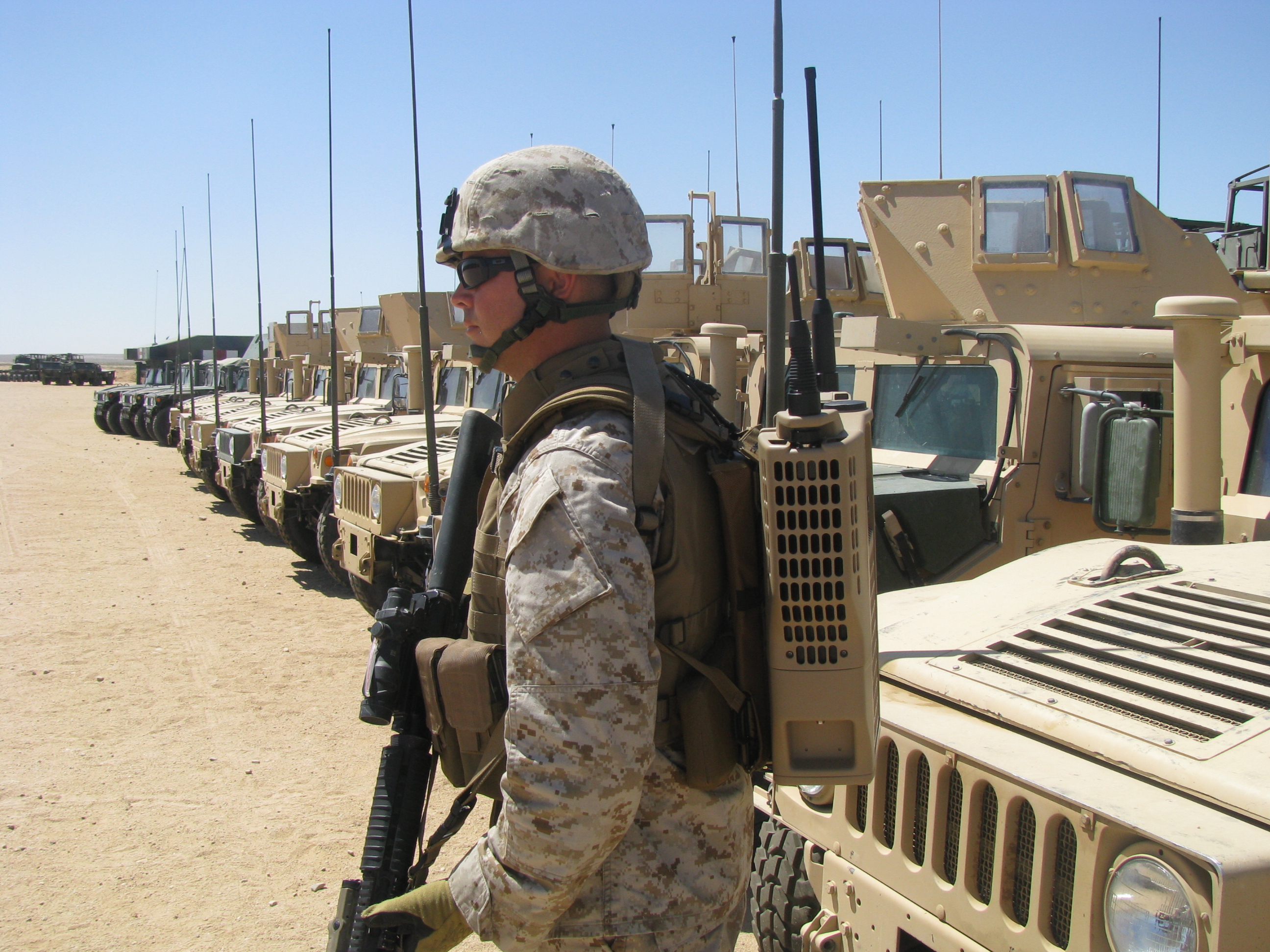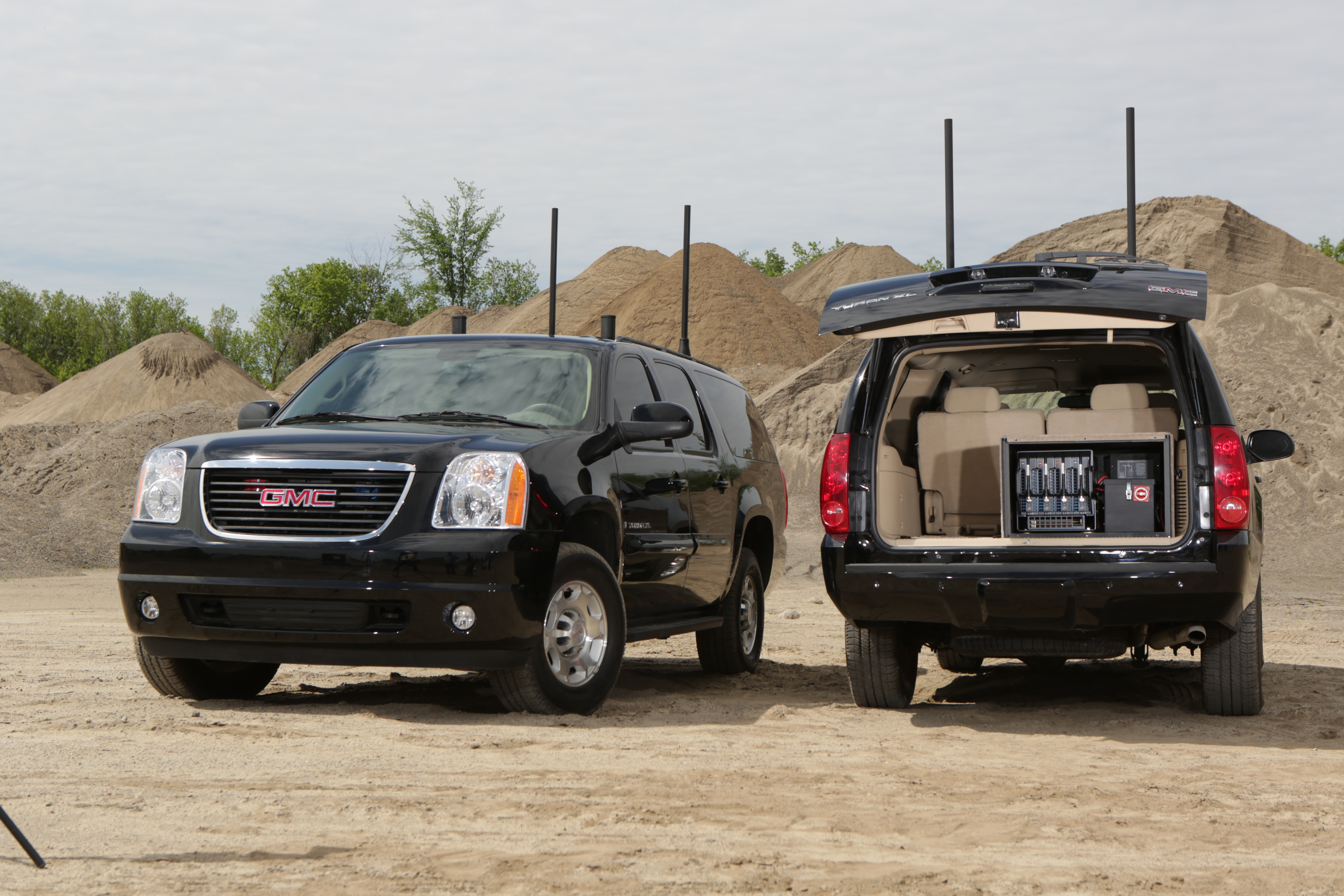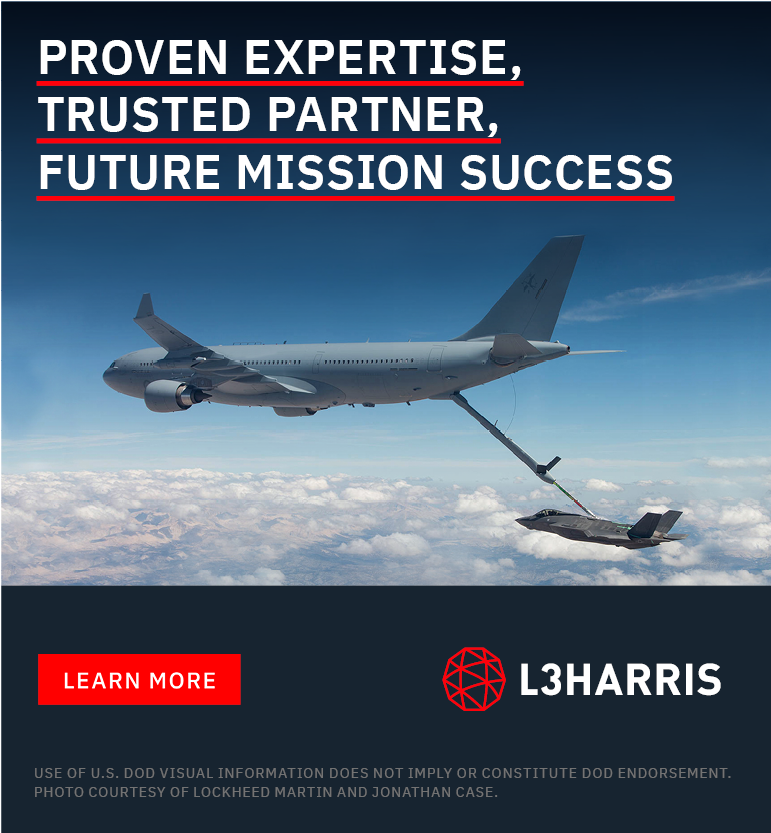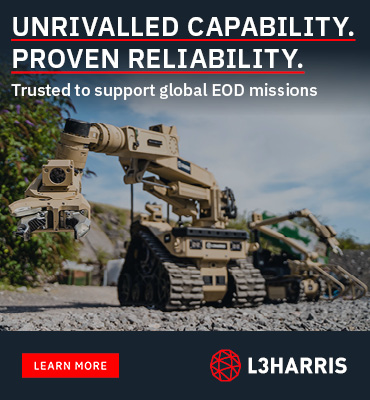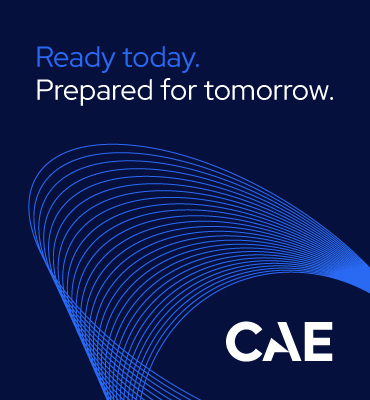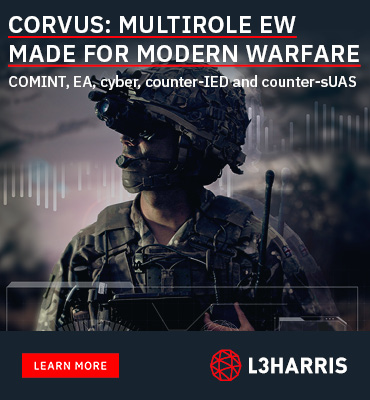BY PETER DIEKMEYER
This Ottawa-based company is defeating RCIEDs with home grown technology
Two years ago Amanda (Mandy) Lewis’s main challenge, was keeping up with her engineering studies. But in May 2014, Lewis, a University of Ottawa graduate in electrical engineering, started a co-op placement at Allen-Vanguard, one of the world’s top counter-RCIED providers. There she was almost immediately thrust into a supporting role in Canada’s contribution to the Middle East Stabilization Force, whose greatest threat is Radio-Controlled Improvised Explosive 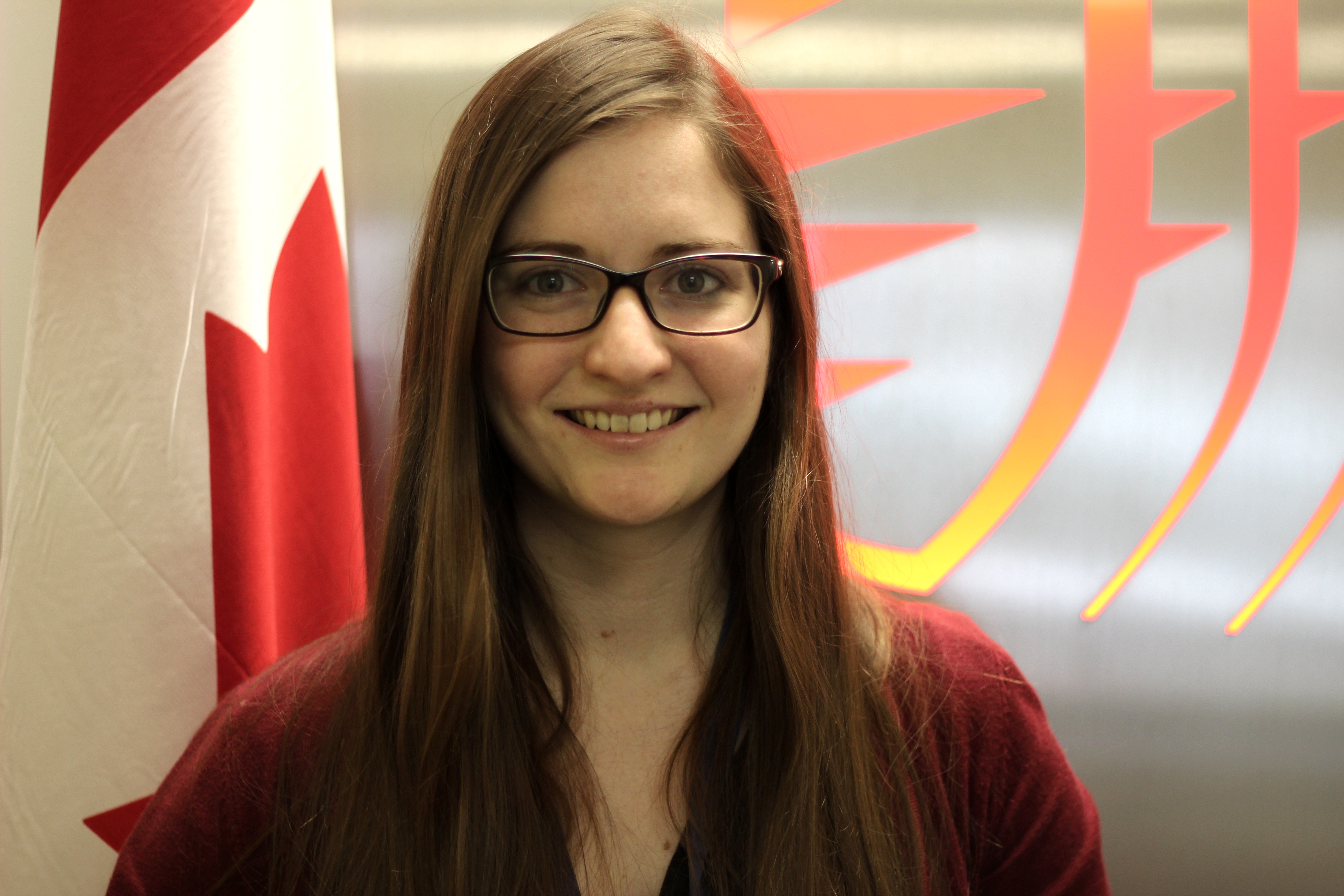 Devices, the scourge of Western forces for more than a decade. RCIEDs, which can be made cheaply and quickly, have accounted for the majority of Western deaths in countries ranging from Afghanistan and Pakistan, to Iraq and Syria. Allen- Vanguard, one of the world’s leading providers of solutions to defeat these nasty weapons, has been using its coveted co-op program to mobilize some of the country’s top engineering talent to pitch in. The threat management team that Lewis is a part of, was charged with identifying the cell-phones, garage door openers, keyless entry systems, pagers and other detonation devices that insurgents had used in recent IED attacks. Allen-Vanguard specialists, including Lewis, who joined the company full-time early last year, draw on a variety of sources to obtain this information. These include TRITON, an open source database that provides the company’s customers with reports of recent attacks. Allen-Vanguard threat management specialists then buy copies of detonation devices and develop ways to test and defeat them, typically by jamming the signals they emit.
Devices, the scourge of Western forces for more than a decade. RCIEDs, which can be made cheaply and quickly, have accounted for the majority of Western deaths in countries ranging from Afghanistan and Pakistan, to Iraq and Syria. Allen- Vanguard, one of the world’s leading providers of solutions to defeat these nasty weapons, has been using its coveted co-op program to mobilize some of the country’s top engineering talent to pitch in. The threat management team that Lewis is a part of, was charged with identifying the cell-phones, garage door openers, keyless entry systems, pagers and other detonation devices that insurgents had used in recent IED attacks. Allen-Vanguard specialists, including Lewis, who joined the company full-time early last year, draw on a variety of sources to obtain this information. These include TRITON, an open source database that provides the company’s customers with reports of recent attacks. Allen-Vanguard threat management specialists then buy copies of detonation devices and develop ways to test and defeat them, typically by jamming the signals they emit.
YES, A GARAGE DOOR
OPENER COULD BLOW YOU UP
Lewis’ tasks in her new job include research, test automation, progress documentation, as well as pitching in on the “acid test” of counter-IED systems: open-air testing on ranges, in live situations. “It is a real thrill for me to be doing hands-on work that matters.” Lewis isn’t alone in this challenging milieu. According to Melinda Harwood, Allen-Vanguard’s manager, human resources (and corporate compliance) the company has been recruiting interns for more than a decade. “Co-op students are very important to us,” says Harwood. “They bring fresh ideas, which are particularly crucial, because the threats we take on are always changing.” Demand for the paid posts, much of which comes from students studying in schools near Allen-Vanguard’s east Ottawa campus, is strong. The company’s direct co-operation with universities and specialized professors on targeted research puts it high on students’ radar screens. So Allen-Vanguard, which got more than a hundred applications for a recent opening, has the pick of the crop. “Ottawa University and Carleton produce a lot of good engineering students,” says Harwood. “However, we get applications from programs across the country. These range from Memorial University of Newfoundland to the University of Victoria. One of the requirements needed for us to qualify for the NSERC grants, which fund two thirds of the program’s cost, is that applicants are full-time university students.” Students with backgrounds in specialized areas of RF engineering or who have targeted skill sets are in particularly high demand. For example Allen-Vanguard recently extended an internship, and later a job offer, to Ryan Switzer, a student from British Columbia who had experience in Field Programmable Gate Array technology, which the company was looking for.
SCORPION II TO
BE UNVEILED AT CANSEC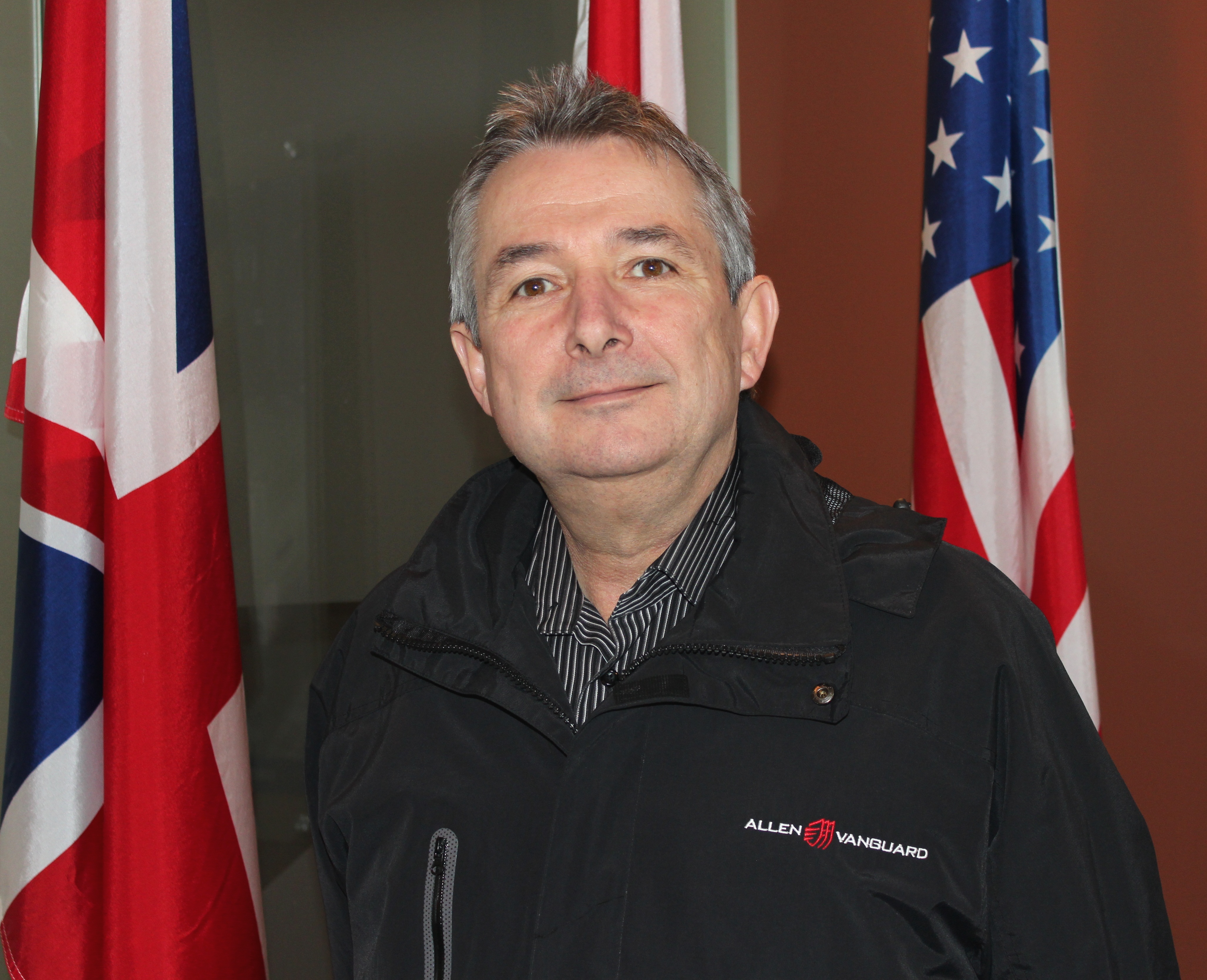
“Helping to get the code right on the new Scorpions II (a product the company will be releasing at CANSEC this year,) was particularly challenging,” says Switzer, who did his initial interviews for a test automation position via Skype. “I can’t believe that I was given the chance.” According to Mike Dithurbide, the company’s President the students’ role is crucial. “Every day our products save someone’s life somewhere in the world,” says Dithurbide. “That means innovation is key and our cooperation with universities plays a big role. Last year we invested more than $5 million in research and development.” However often there are more than lives at stake. Entire missions can hinge on how well defence forces incorporate counter IED technology. That’s particularly true during a time when Western public opinion is fickle regarding overseas troop deployments. Insurgents, particularly in the Middle East where Canadian troops are currently deployed, are fully aware of the fact that a well-executed insurgent strike, could severely damage the country’s resolve back home. Ultimately, missions, which could otherwise have been successful, might have to be abandoned.
CANADIANS IN
HARM’S WAY IN IRAQ
Here in Canada, Improvised Explosive Devices (IEDs) burst onto defence officials’ radar screens again, following the election of the Trudeau regime. In February the government announced a troop surge in Iraq, which according to the Department of National Defence, will bring the number of Canadian soldiers assigned to the Middle East Stabilization Force to 830. Of these, an estimated 200 will be military trainers, some of whom will be engaged in combat operations, by marking targets for coalition partners. While not engaging directly in the assaults themselves, these forces will almost certainly be regarded by the Islamic State insurgents as “fair game.” If such threats materialize it will likely once again be in the form of IEDs whose use has continued to grow over the past year, says Dithurbide. According to data collected by the Joint Improvised-Threat Defeat Agency, the number of IED explosions in Iraq rose by 80 percent during 2015. A Conflict Armament Research report further notes that these devices, which the Islamic State is now producing on an “industrial scale,” are severely hampering allied forces’ troop movements, and thus their ability to effectively conduct operations.
IEDs PRODUCED ON
AN INDUSTRIAL SCALE
“IEDs had pretty much fallen off the radar screen among the general public, following the drawdown in Canadian Forces in Afghanistan,” says Dithurbide. “However defence officials are fully aware of the growing threat, that our trainers will now be facing every day.” Heightening those threats is the fact that a large part of those IED attacks occurred in Kurdish areas in Syria, directly across from the porous border from the Kurdish areas of Iraq, where many Canadian troops will be based. Canada of course is not alone in facing those challenges, which are shared by many of its Western allies. Allen-Vanguard thus not surprisingly is shipping its Equinox and Scorpion amplifiers, antennas and jammers, as well as associated support services, around the world. This gives them greater flexibility in how they can use the technology. As a result of this success, Allen-Vanguard’s staffing levels have grown during the past year to nearly 50 employees, most of whom are based in Canada and the United Kingdom. According to Dithurbide the company will be adding at least four more skilled employees in the coming months.
FLEXIBLE STRATEGY REQUIRED
A key challenge in defeating insurgent IED threats relates to their inherent flexibility. As a recent NATO document notes: “IEDs can be hidden anywhere, detonated via cell-phones or trip wires and deployed everywhere: in a combat environment or in the middle of a busy city.” Students of war, including ISIS commanders, learn early in their career about Sun Tsu’s advice: that a key step in defeating an enemy, is to defeat its alliances. As such, defence experts know that although Canadian troops in the Middle East Stabilization Force’s will likely be deployed as far from the front as possible, they remain prime targets. According to Trevor Yensen, chief scientist at Allen-Vanguard, Insurgents’ ability to constantly find new ways to deploy and use IEDs puts increased pressure on companies such as Allen-Vanguard, which must constantly adapt their technology. “We need to be flexible in our approaches,” says Yensen. “That means constantly monitoring all sources of intelligence about IEDs, to track the new threats that are emerging.” Complicating matters is the fact that the exploding (pun intended) use of communications devices that can potentially trigger IEDs, and the increased spectrum being allocated to them, exacerbates the challenges related to creating optimal jamming solutions, which do not drain too much power and bandwidth.
TARGETING CFLEWM
That said, while Allen-Vanguard staff devote considerable efforts to putting out fires as they occur, the company is also dealing with significant strategic considerations. Longer-term, Allen-Vanguard hopes to contribute to the Canadian Forces Land EW Modernization program (CFLEWM), for which it is clearly a front-runner. The government is currently writing the requirements for the program, which, according to Canada’s defence acquisition guide (DAG), could be worth between $100 million and $250 million over the life of the agreement. The project definition is expected to receive final approval this year. If all goes on schedule, a request for proposal should come out in 2017. As for Allen-Vanguard’s new recruit, Lewis’ focus remains on tasks at hand. These include adjusting to an industry, in which, although things are gradually changing, men still outnumber women – a fact that she downplays.
“DOING SOMETHING REALLY MEANINGFUL”
“It’s been awesome,” says Lewis, who hardly looks like she would be a threat to anyone, let alone the Islamic State. “It’s true that I am in a minority within the engineering department at Allen-Vanguard and within the engineering field as a whole. But you’d be surprised what a non-issue it has been.” “I’ll admit that I was a bit intimidated at first,” says Lewis. “But it was more by the nature of the job itself. I had completed three co-op placements before I joined Allen-Vanguard, all of them with highly-regarded companies. But none gave me anything close to this kind of opportunity. We all have the sense here that we are doing something really meaningful.”


